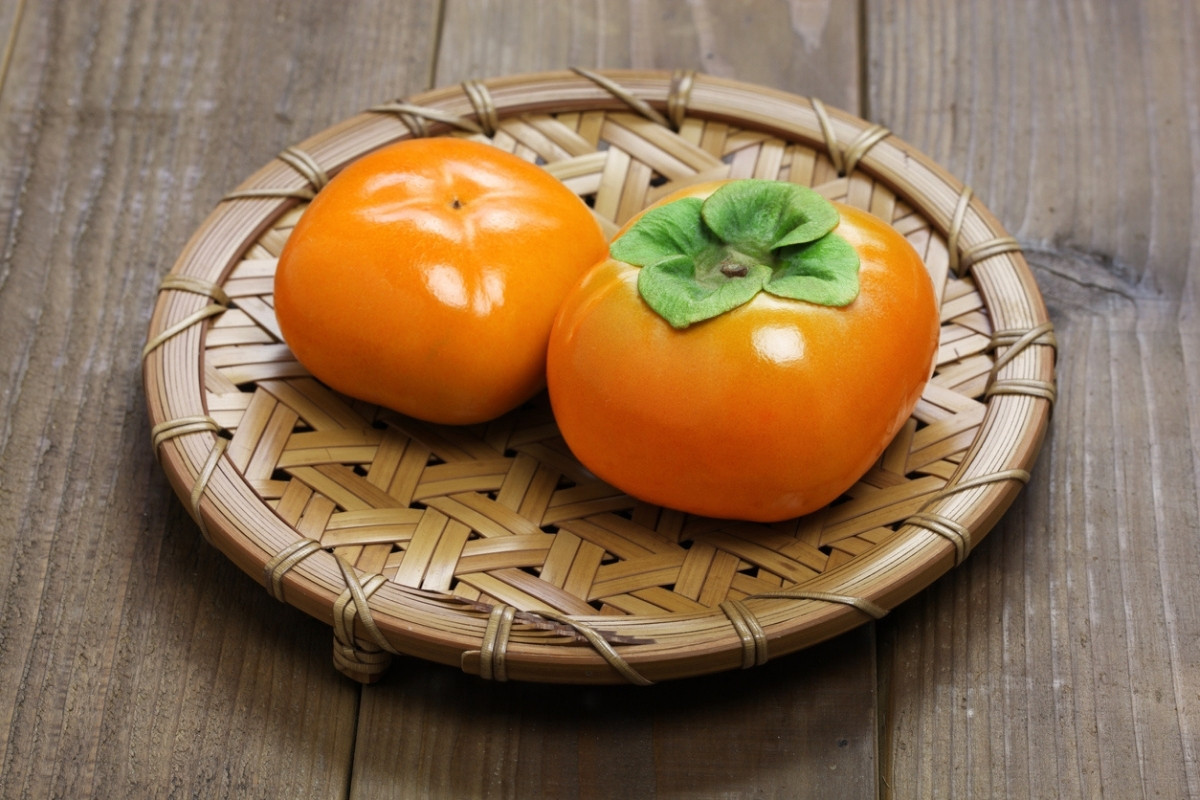
Japanese persimmons, known as kaki in Japan, are more than just a tasty fruit. These vibrant orange gems have a rich history and cultural significance. Did you know that Japanese persimmons are one of the oldest cultivated plants in Japan, dating back over 1,000 years? They are not only delicious but also packed with nutrients like vitamins A and C, fiber, and antioxidants. Whether you enjoy them fresh, dried, or cooked, persimmons offer a unique flavor that ranges from sweet to slightly tangy. Curious about how these fruits are grown, harvested, and used in various dishes? Let's dive into 25 fascinating facts about Japanese persimmons that will leave you craving this delightful fruit!
What is a Japanese Persimmon?
Japanese persimmons, also known as kaki, are a type of fruit native to East Asia. They are celebrated for their sweet, honey-like flavor and vibrant orange color. Let's dive into some fascinating facts about this delicious fruit.
-
Ancient Origins: Japanese persimmons have been cultivated for over 2,000 years in China and Japan.
-
Botanical Name: The scientific name for Japanese persimmon is Diospyros kaki.
-
Two Main Types: There are two main varieties: astringent and non-astringent. Astringent persimmons need to be fully ripe to lose their bitterness, while non-astringent ones can be eaten while still firm.
Nutritional Benefits of Japanese Persimmons
These fruits are not only tasty but also packed with nutrients. Here are some health benefits you might not know about.
-
Rich in Vitamins: Japanese persimmons are high in vitamins A, C, and E.
-
Low in Calories: A medium-sized persimmon contains only about 70 calories, making it a great snack for those watching their weight.
-
High Fiber Content: They are an excellent source of dietary fiber, which aids in digestion.
-
Antioxidant Powerhouse: Loaded with antioxidants like beta-carotene, they help fight free radicals in the body.
Cultural Significance of Japanese Persimmons
Japanese persimmons hold a special place in East Asian culture, often symbolizing good fortune and longevity.
-
Symbol of Autumn: In Japan, persimmons are a symbol of autumn and are often featured in seasonal festivals.
-
Traditional Medicine: In traditional Chinese medicine, persimmons are used to treat hiccups, diarrhea, and high blood pressure.
-
Culinary Uses: They are used in various dishes, from salads to desserts, and even dried as a sweet snack.
Growing Japanese Persimmons
Interested in growing your own persimmon tree? Here are some facts about their cultivation.
-
Climate Needs: Japanese persimmons thrive in warm, temperate climates.
-
Soil Preferences: They prefer well-drained, loamy soil.
-
Pollination: Some varieties are self-pollinating, while others require a second tree for cross-pollination.
-
Harvest Time: The fruit is typically harvested in late fall, around October to November.
Fun Facts About Japanese Persimmons
Here are some quirky and fun facts that make Japanese persimmons even more interesting.
-
Name Meaning: The word "kaki" means "persimmon" in Japanese.
-
Long Shelf Life: When dried, persimmons can last for several months without spoiling.
-
Bird Magnet: Birds love persimmons and often help in spreading their seeds.
-
Natural Sweetener: In Japan, dried persimmons are sometimes used as a natural sweetener in tea.
Health Benefits of Japanese Persimmons
Beyond their nutritional value, Japanese persimmons offer several health benefits that might surprise you.
-
Heart Health: The high fiber and antioxidant content can help reduce the risk of heart disease.
-
Boosts Immunity: The high vitamin C content helps strengthen the immune system.
-
Eye Health: Rich in vitamin A, they are great for maintaining good vision.
-
Anti-Inflammatory: The antioxidants in persimmons have anti-inflammatory properties.
Interesting Uses of Japanese Persimmons
Japanese persimmons are versatile and can be used in various ways beyond just eating them fresh.
-
Persimmon Vinegar: In Japan, persimmon vinegar is a popular condiment.
-
Natural Dye: The tannins in persimmons can be used to create a natural dye for fabrics.
-
Wood Uses: The wood from persimmon trees is hard and dense, making it ideal for furniture and sports equipment like golf club heads.
The Sweet Finale
Japanese persimmons, or kaki, are more than just a tasty treat. They pack a punch with vitamins, fiber, and antioxidants. These fruits have a rich history in Japan, symbolizing good fortune and prosperity. Whether you enjoy them fresh, dried, or in recipes, they offer a unique flavor that’s both sweet and slightly tangy.
Growing your own persimmon tree can be rewarding, providing both beauty and bounty. These trees are hardy and can thrive in various climates, making them a great addition to many gardens. Plus, they’re relatively low-maintenance once established.
Next time you spot a persimmon at the market, give it a try. You might just find a new favorite fruit. From their health benefits to their cultural significance, Japanese persimmons truly are a gem worth exploring.
Was this page helpful?
Our commitment to delivering trustworthy and engaging content is at the heart of what we do. Each fact on our site is contributed by real users like you, bringing a wealth of diverse insights and information. To ensure the highest standards of accuracy and reliability, our dedicated editors meticulously review each submission. This process guarantees that the facts we share are not only fascinating but also credible. Trust in our commitment to quality and authenticity as you explore and learn with us.
